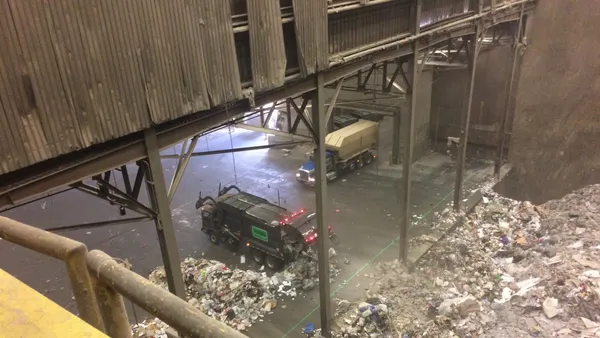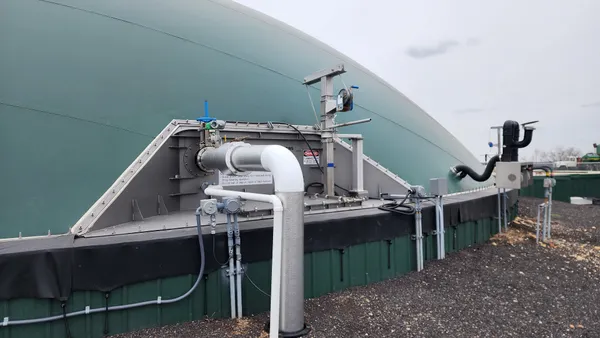Dive Brief:
- The proposal for a regional Fiberight waste-to-energy facility in Hampden, ME has been scaled down due to a lack of interest from local towns.
- The Municipal Review Committee (MRC), which represents more than 180 cities and towns, is supporting this as the best option for moving forward after their current contract with the Penobscot Energy Recovery Co. (PERC) incinerator expires in 2018. A number of towns have begun exploring other options, such as landfilling.
- So far 87 communities, generating about 87,500 tons of waste annually, have signed on to the MRC's plan. Officials originally said the facility would need to have a 150,000 ton capacity to be viable, but that number has now been reduced to 110,000 tons.
Dive Insight:
Maryland-based Fiberight has proposed a mixed waste facility that will divert recyclables and process organic material into industrial sugars and bio-fuels. The technology is less well-known than traditional options such as the current PERC facility and many towns are skeptical that it will work or be able to attract enough material.
PERC's position as the state's largest waste-to-energy provider had been strong, but it will lose its purchase agreement with power provider Emera and many communities worry that the rates for disposing their waste will go up as a result. The company ecomaine handles waste for Portland, the state's largest city, and was also considered as an option at one point. In April, PERC claimed it had struck a deal with Casella that would have undermined the MRC plan but that claim has not been confirmed.
Whether the Fiberight plan can attract enough support from local communities to work, the MRC is confident that additional tonnage from commercial haulers will help reach capacity. All companies and communities involved are watching closely as whatever ends up happening will have profound effects on the state's waste industry for many years to come.
Communities have until June 30 to sign on to a 15-year contract with Fiberight.











